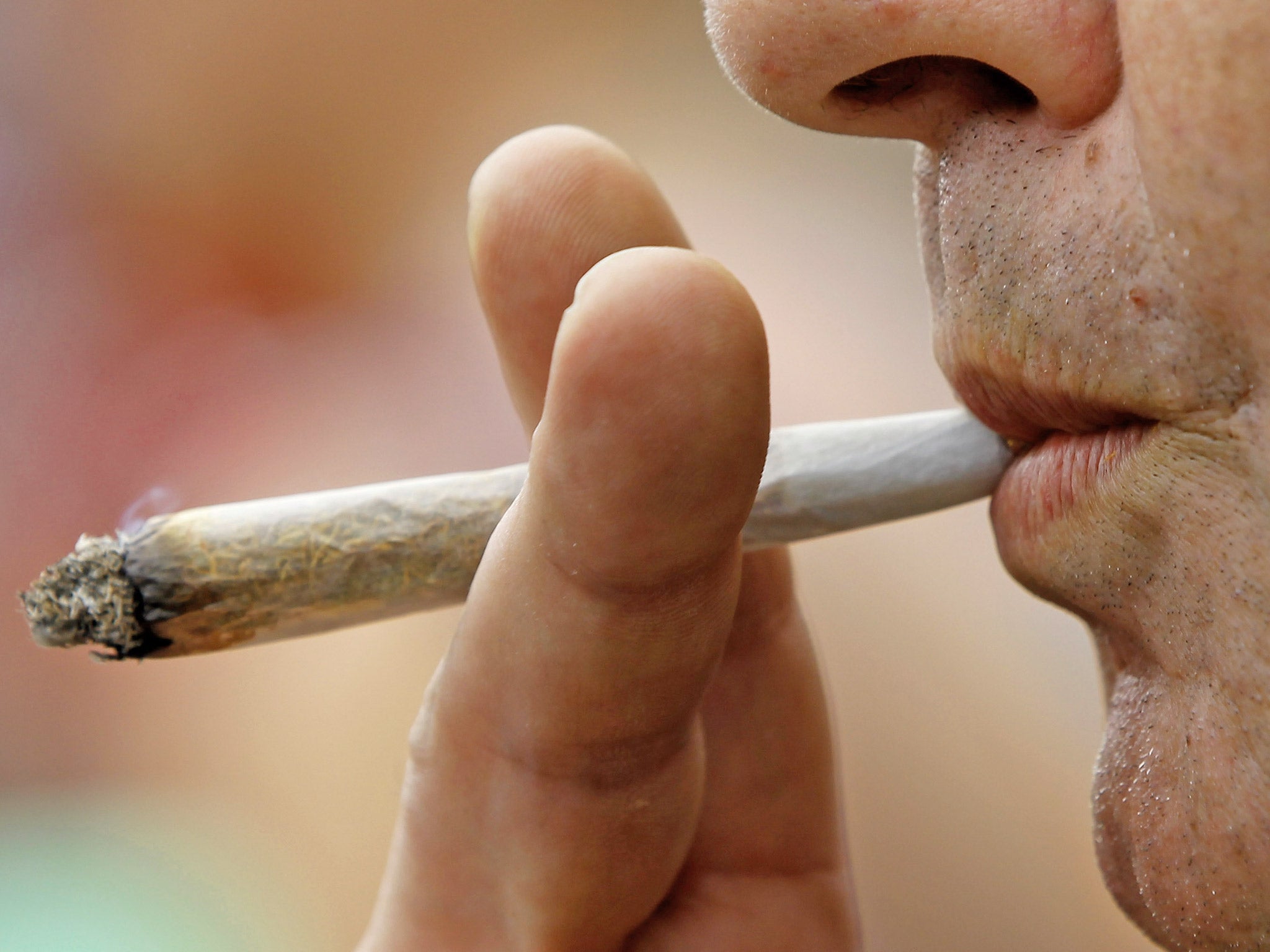Men are 4 times more likely than women to be diagnosed with 'cannabis psychosis', according to study
Some research has suggested the hormone oestrogen may have a protective effect for women in relation to psychosis

Your support helps us to tell the story
From reproductive rights to climate change to Big Tech, The Independent is on the ground when the story is developing. Whether it's investigating the financials of Elon Musk's pro-Trump PAC or producing our latest documentary, 'The A Word', which shines a light on the American women fighting for reproductive rights, we know how important it is to parse out the facts from the messaging.
At such a critical moment in US history, we need reporters on the ground. Your donation allows us to keep sending journalists to speak to both sides of the story.
The Independent is trusted by Americans across the entire political spectrum. And unlike many other quality news outlets, we choose not to lock Americans out of our reporting and analysis with paywalls. We believe quality journalism should be available to everyone, paid for by those who can afford it.
Your support makes all the difference.Over 14 million people in the United Kingdom have used cannabis, making it by far the most popular illicit drug. Most of them will not develop problems, but for those who do the impact on their mental health can be severe. Cannabis psychosis can be devastating for an individual and their family, leading to hospital admission and potentially longer term mental health problems such as schizophrenia.
We conducted research to look at whether men and women are equally affected by cannabis use and its associated mental health problems. We found that men are four times more likely than women to be diagnosed and admitted to hospital with cannabis psychosis. These elevated rates were consistent over the eleven years of the study period, so not simply a one year blip.
The marked gender difference in rates of cannabis psychosis is puzzling. Particularly as only men are only twice as likely as women to use cannabis. So why might this be? It could be the result of a bias in treatment services which tend to be dominated by male patients. This could have two consequences; first, it might make staff in those services more vigilant for problems with cannabis and as there are more men being treated anyway this distorts the number who are diagnosed and treated for cannabis psychosis. And secondly, women might find it hard to access treatment which they rightly perceive as male dominated. This could be a barrier woman when they are likely to be feeling at their most vulnerable.
It is also likely that women with children will avoid seeking specialist treatment when they develop mental health problems as a result of cannabis use out of fear that their children could be taken into care, particularly if they have no family support. Likewise services might be treating such women differently knowing that they have a duty to safeguard these children. Consequently health and social care services might be offering the least invasive service they can to enhance continued contact between mother and child.
Some research has suggested the hormone oestrogen may have a protective effect for women in relation to psychosis. This might be a factor that in part explains the gender variation for cannabis psychosis.
This research follows a tradition of asking one question only to find by the end you have created many more. All we can say for certain is that when cannabis and psychosis collide, gender does matter.
Ian Hamilton is a lecturer in mental health in the Department of Health Sciences, University of York, with an interest in the relationship between substance use and mental health. He was also a former mental health nurse in South London, working with people who used drugs or alcohol problematically
Join our commenting forum
Join thought-provoking conversations, follow other Independent readers and see their replies
Comments